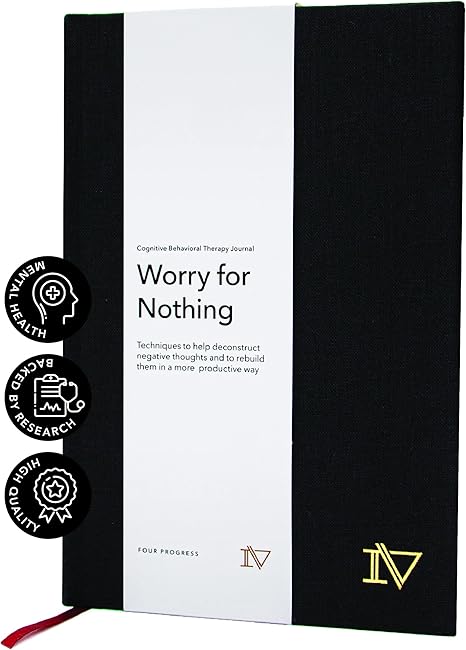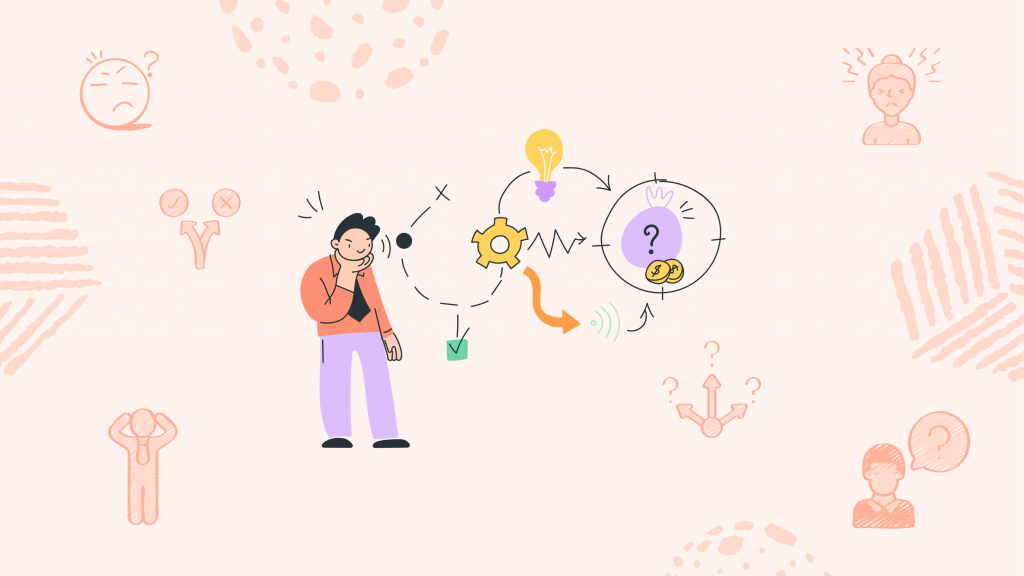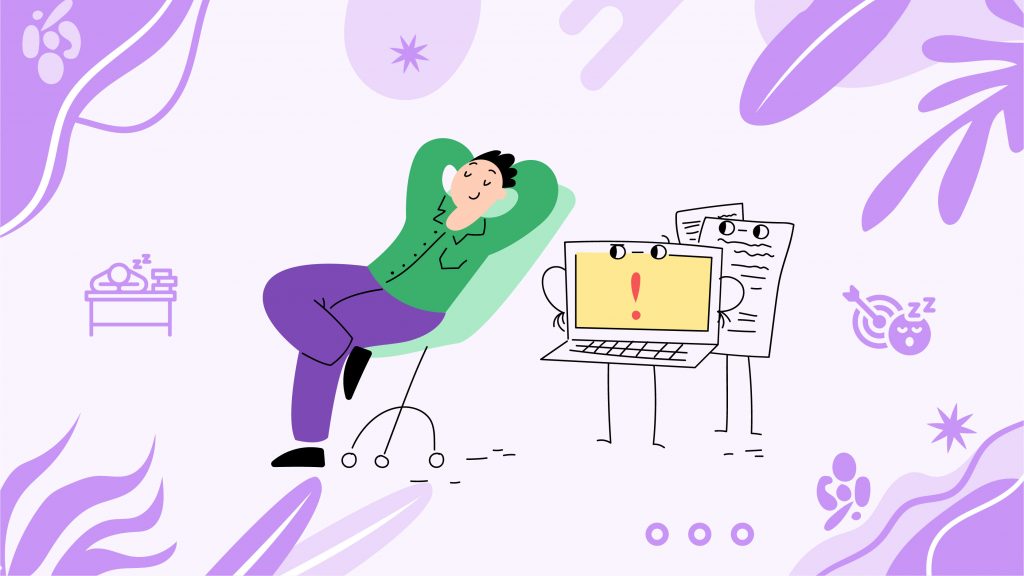Are you feeling drained and struggling to keep up with life’s demands?
Struggling to point out the exact reason and feeling overwhelmed to keep up with the daily obligations?
If the answers to both the questions were yes, you are experiencing burnout.
Burnout is not something that you can take lightly. It demands your complete attention and consideration, just as any other major concern does. When you feel drained and lack inspiration in life, it’s a clear sign that you are doing more than your capacity, whether it’s work or dealing with people and other life situations.
It might leave you doubting your own caliber and capabilities. But realize that it isn’t about second-guessing yourself. It’s about acknowledging your limits and honoring them to ensure your overall well-being.
What is Burnout?
A burnout happens when you feel drained and exhausted to the point of quitting. When you become a victim of chronic stress and gradually lose the energy and motivation to carry out even routine functions, you can say you are hit by burnout. Sometimes, overwork can also make you feel like you have no energy left and you are forcefully dragging yourself through each day.
It happens when you feel physically, emotionally, and mentally drained all at once. You feel like you have lost control over life, and all areas of life suffer, leading to frustration, overwhelm, and hopelessness. The good news is—there are practical ways to counter burnout and bounce back even stronger. The time required to recover from burnout and the severity of its impact depends on how intense your experience has been.
🎭 Fun Fact:
Did you know that burnout was officially recognized as a medical condition by the World Health Organization in 2019?
With growing awareness, we must stay attuned to our feelings to navigate tough times effectively.
Symptoms of Burnout
- You feel tired and exhausted for no apparent reason.
- You feel drained and unmotivated to perform even the basic functions.
- Your sleep patterns are disturbed, and you experience restless nights.
- Your emotional sensitivity is heightened, and you feel overwhelmed by everyday stressors.
- You find it difficult to concentrate and fix your focus on a particular task.
- You easily get irritated, and experience increased frustration and impatience with others.
Ways to Overcome Burnout
#1: Identify the Signs
To deal with the burnout you are experiencing, it is vital that you first notice the signs and symptoms of burnout. Whether you are experiencing fatigue, irritability, a lack of motivation to do the tasks, or lost the inspiration to move ahead, it’s all coming from your drive to meet your overcommitments. You must acknowledge the signs that are pushing you into the black hole of burnout.
It is crucial to stop and assess how you feel about yourself. If you think meeting your obligations and dragging yourself into the given condition is sustainable, you are highly mistaken.
Quick Question:
How do you feel when you start your workday? Energized or already drained?
Answer it in your mind, and you’ll know how your current routine is affecting your mental and physical well-being. This awareness is the first step in addressing burnout and making necessary changes.
#2: Set Boundaries
Among the ways to recover from the exhaustion and fatigue of burnout is to set healthy boundaries around yourself. When you are already suffering the consequences of bearing stress and running out of steam, it’s time to stop and re-evaluate the boundaries you have with your work and others. Here’s where you’ll find solutions to your maximum problems. Either you are overburdened with responsibilities that you need to shed off, or you are doing more than you can do.
Try to separate your personal and professional obligations. Spare some time for yourself to do things that you like. It could be anything that makes you reconnect with the purpose of life. When you step in the direction of making yourself joyful, your productivity doubles.
#3: Focus on Self-Care
The real solution to the problem of burnout starts with focusing on self-care. It is vital that we pay attention to our personal needs, time, and space. When we get overly engrossed in other areas of our lives and overlook our own well-being, it becomes the perfect recipe for burnout. It not only affects us on the physical front but drains us out mentally and emotionally as well.
To counterbalance this situation, you can start by taking time for your hobbies that ignite your passion, going for walks, and indulging in other relaxation activities that can help you reclaim your lost peace and vitality. Other activities that can help you recover from burnout include practicing gratitude, connecting with your loved ones, or seeking assistance from guided anxiety journals to ease your mind.
#4: Take a Breather
When you experience burnout, it becomes a must to keep aside your work and other obligations and focus on your immediate well-being. In times when you are stuck in a loop of non-productivity and can’t lift yourself, no matter what you do, it becomes a pre-requisite to take a break where you can drop your stuff altogether.
It could be going on a mini vacation or doing what makes you feel good about yourself for a while. Introspection should be the last thing on your mind. You can also work around with essential oils. It will help you enter a better mind frame and promote relaxation.
#5: Reassess your Tasks
If you have reached a stage where you cannot cope with the daily obligations, chances are you are already doing more than you can do. It is important to re-evaluate the tasks and goals that you have set for yourself and make practical changes to ease your load. It is important that you shed the load of some work and responsibilities so that you can move ahead in life with little ease and comfort. Understand it is not being selfish when you prioritize yourself and take steps for your physical, mental, and emotional well-being.
👉 The “No” Challenge:
For one week, practice saying “no” to additional tasks that don’t align with your current capacity.
When you do this, you’ll find the exact reasons for what pushed you to this point of exhaustion and burnout, and from there, you can pick yourself up and set rules and parameters that support your well-being.
Final Reflection
When suffering from burnout, you may feel compelled to push through the exhaustion and might think you need to upgrade or level up your game. But understand it won’t work that way. You have to stand by yourself and give yourself the comfort and relaxation you are deprived of. Burnout is an alarming signal that change is needed, and you must listen to your internal guidance to make sure everything falls back in place.
FAQs
When burnout hits, it shows up in the form of various signs and symptoms. You feel drained and tired, and your productivity is often affected as an end result. You feel detached from your people and life as a whole and find it hard to concentrate on work. This initiates a cycle of pessimism, which further sinks you into feelings of sadness and hopelessness.
The best and easiest way to recover from burnout is to drop everything for a while and do what makes you feel good at the moment. There’s no way you can move further without addressing the present feelings and concerns that are bogging you down. Prioritize self-care and try to identify the stressors that are causing you the stress and burden. Once you fix them from the roots, you will feel better and will soon come out of the trap of doom and gloom.
One of the best ways to handle burnout is to focus entirely on self-care and establish healthy boundaries. Prioritize sleep and relaxation to alleviate burnout’s effects. Additionally, practice mindfulness and meditationNew Window – New Window, as they can have a visibly positive impact. Surround yourself with a supportive network of friends and family to help you bounce back from burnout.
There’s no fixed timeframe for recovering from burnout. Depending upon your resilience to deal with several issues and the severity of burnout, it may take from weeks to months to fully recover from its effects. Factors like support systems, willingness to make lifestyle changes, and professional guidance have a significant impact on the gravity of burnout.























